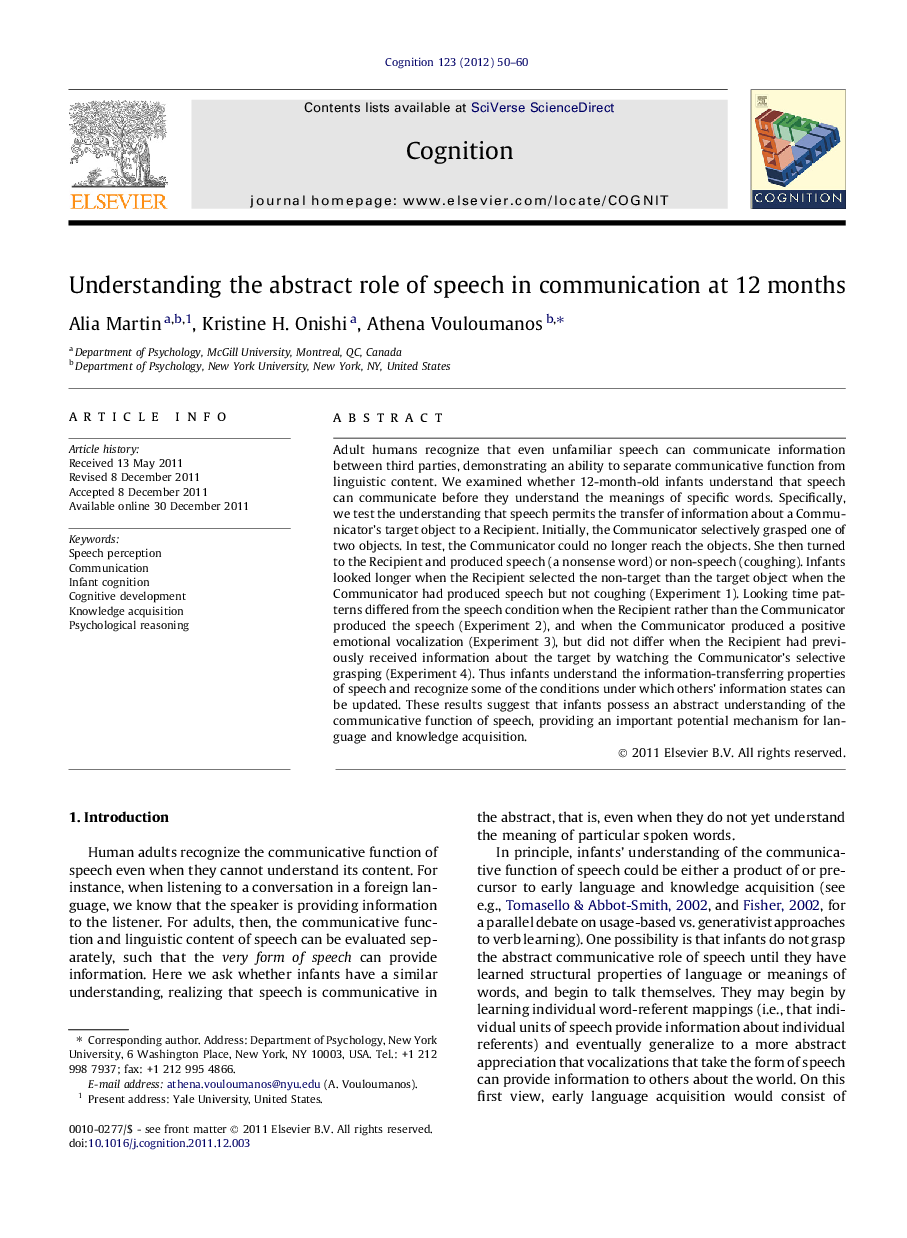| Article ID | Journal | Published Year | Pages | File Type |
|---|---|---|---|---|
| 926515 | Cognition | 2012 | 11 Pages |
Adult humans recognize that even unfamiliar speech can communicate information between third parties, demonstrating an ability to separate communicative function from linguistic content. We examined whether 12-month-old infants understand that speech can communicate before they understand the meanings of specific words. Specifically, we test the understanding that speech permits the transfer of information about a Communicator’s target object to a Recipient. Initially, the Communicator selectively grasped one of two objects. In test, the Communicator could no longer reach the objects. She then turned to the Recipient and produced speech (a nonsense word) or non-speech (coughing). Infants looked longer when the Recipient selected the non-target than the target object when the Communicator had produced speech but not coughing (Experiment 1). Looking time patterns differed from the speech condition when the Recipient rather than the Communicator produced the speech (Experiment 2), and when the Communicator produced a positive emotional vocalization (Experiment 3), but did not differ when the Recipient had previously received information about the target by watching the Communicator’s selective grasping (Experiment 4). Thus infants understand the information-transferring properties of speech and recognize some of the conditions under which others’ information states can be updated. These results suggest that infants possess an abstract understanding of the communicative function of speech, providing an important potential mechanism for language and knowledge acquisition.
► We examine whether infants understand the abstract role of speech in communication. ► Infants separate the communicative function of speech from its linguistic content. ► Infants understand when speech, and non-speech, can transfer information. ► Infants track different information states to interpret communicative attempts. ► Understanding speech’s communicative function provides a mechanism for learning.
